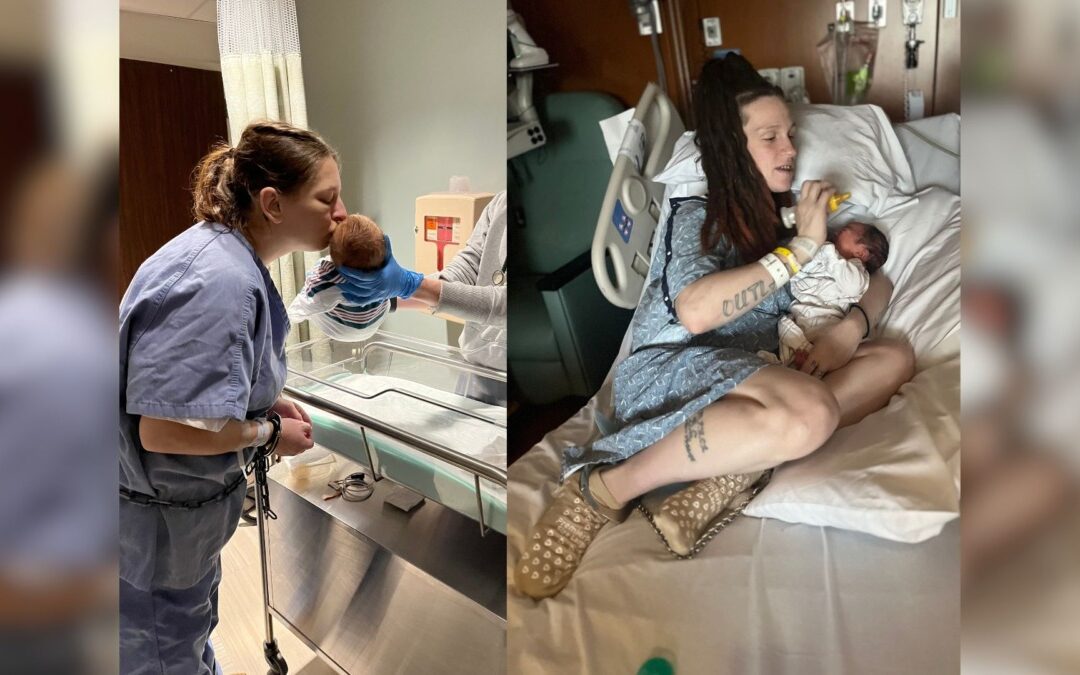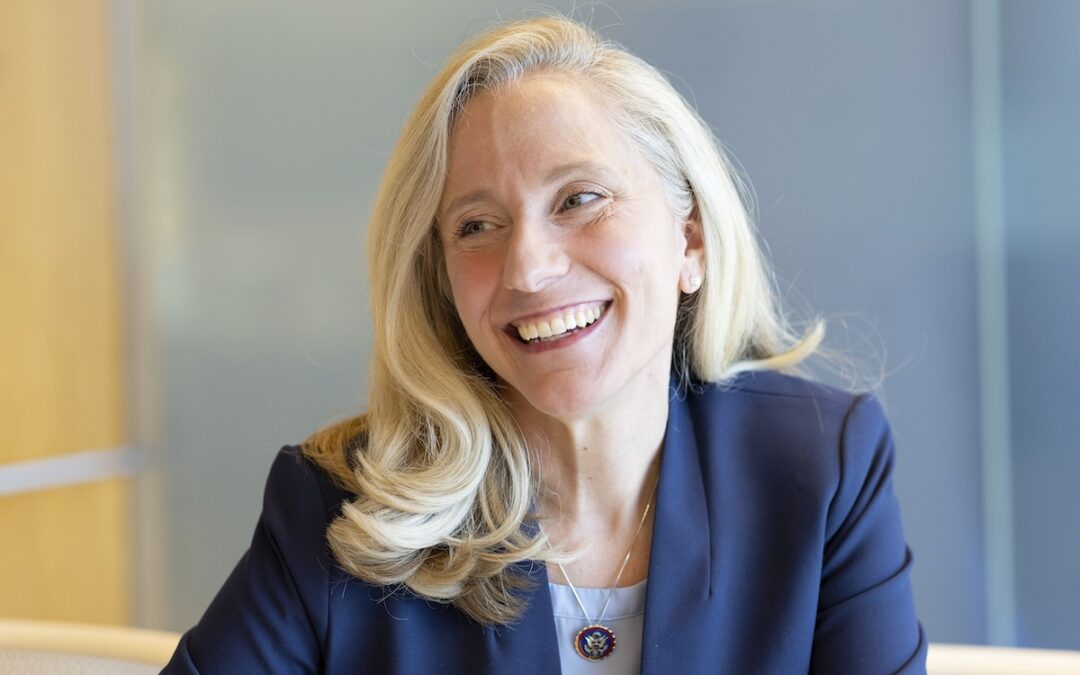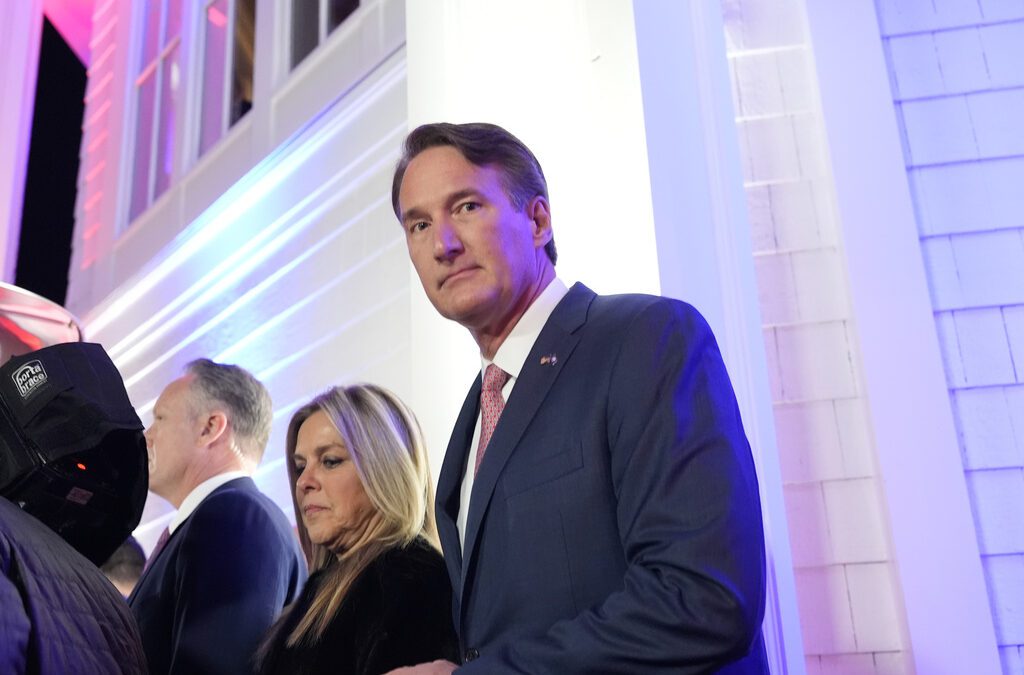
Although these pharmacies dispensing the drug marks a victory for reproductive freedom, a looming Supreme Court case could cut off access to the medication in states where abortion is still legal. (AP Photo/Susan Walsh, File)
A group of independent pharmacies in states across the country have begun dispensing the abortion pill mifepristone–an action made possible thanks to new rules implemented by the Biden administration earlier this year.
The news, which was first reported by Politico, comes after President Joe Biden in January issued new rules allowing retail pharmacies to dispense mifepristone. Mifepristone, along with another drug, misoprostol, is approved through 10 weeks of pregnancy, and is used in more than half of abortions nationwide.
The move was one of the actions Biden’s administration has taken to preserve and expand access to abortion in the post-Roe era, in light of increasing Republican-led bans on the procedure.
Unsurprisingly, Biden’s efforts have faced attacks from Republican state officials, who’ve tried to restrict women’s access to the drug and discouraged pharmacies from seeking certification to dispense it.
Currently, only 19 pharmacies have publicly confirmed they are dispensing the drug, though others could be providing the medication more quietly, amid fears of retribution from anti-abortion groups, many of whom pledged earlier this year to picket, boycott, and organize pressure campaigns targeting pharmacies that chose to dispense the drug.
While thousands of branches of major pharmacies are expected to also begin dispensing mifepristone in the coming months, some companies have said that they will not dispense the drug in states where Republican attorneys general have threatened legal action, or in states where there’s a discrepancy between abortion being legal and a pharmacist’s personal ability to dispense the drug.
Many Republican-led states have banned or placed curbs on mifepristone, as well. And even in states with legal protections for abortion, many individual pharmacies and pharmacists are refusing to dispense the drug based on personal beliefs, or fear of pushback.
In Virginia, abortion is currently legal until fetal viability, which is usually around 23-24 weeks. Medication abortion is also legal, but the patient must be prescribed the pills by a clinician; the prescription can be obtained through a virtual or in-person doctor’s appointment.
Nationwide access to the medication is also at risk due to a lawsuit from anti-abortion activists seeking to revoke FDA approval of the medication and severely restrict its use.
In April, US District Judge and Trump appointee Matthew Kacsmaryk, issued a ruling in the case and ordered a complete hold of the federal approval of mifepristone, overruling decades of scientific approval precedents and hundreds of studies documenting the drug’s safety in abortion care.
In response, a federal appeals court partially blocked Kacsmaryk’s decision, maintaining mifepristone’s availability, but limited access in ways that could harm patients seeking abortion care. The Supreme Court then stepped in, ruling that the availability of mifepristone would not change as an appeal moves forward.
In effect, the appeals court’s ruling — which wouldn’t go into effect until the appeals process concludes — would allow the 2000 FDA approval of mifepristone to stand, but would strike down regulatory changes made since 2016 allowing patients to use telemedicine to obtain a prescription and to receive mifepristone by mail.
The case has been appealed to the Supreme Court, and despite pressure from pro-choice advocates and President Biden himself, the Court, which began its new term this week, has yet to announce whether it will hear the case, Alliance for Hippocratic Medicine v. US Food and Drug Administration, before the term ends in June 2024.
More than 600 state-level Democratic lawmakers from 49 states have signed an amicus brief to the Court urging the justices to maintain access to mifepristone and completely overturn Kacsmaryk’s decision.
In Virginia, a dozen lawmakers signed the brief, including Sens. Jeremy McPike and Jennifer Boysko, and Dels. Kathy Tran and Mark Sickles.
Whether or not the Supreme Court hears the case, health care access in the US will be altered.
In August, Planned Parenthood stated that “availability of mifepristone is essential to ensuring people have access to abortion.”
“Pregnant people should be the ones who make decisions about their own health care, and medical professionals should be the ones who make evidence-based decisions about the safety of medications — not judges,” Alexis McGill Johnson, president and CEO of the Planned Parenthood Federation of America said in a statement. “The Supreme Court should reject this clearly baseless and political attempt to interfere with our ability to get health care.”
If mifepristone is pulled from the market, doctors will be forced to prescribe just misoprostol, the second drug in the two-drug regimen that is prescribed to end a pregnancy, which has a lower rate of effectiveness when prescribed alone.
Legal experts have also warned that this case could “upend decades of precedent” and could “set the stage for political groups to overturn other FDA approvals of controversial drugs and vaccines.”
The Biden administration has said that it stands by the FDA’s nearly two-decade old approval of mifepristone, and that it’s “focused on ensuring access.”
Correction: A previous version of this story misstated the status of court-ordered restrictions on mifepristone, none of which would go into effect until the conclusion of the appeals process in the lawsuit challenging the medication’s approval. This story has been updated to correct the mistake. We regret the error.

Virginia passes two landmark bills to protect pregnant people behind bars
New laws now ban shackling during labor and give judges more flexibility to release pregnant people pretrial. Here’s how it happened—and why it...

Trump administration revokes guidance requiring hospitals to provide emergency abortions
WASHINGTON (AP) — The Trump administration announced on Tuesday that it would revoke guidance to the nation's hospitals that directed them to...

Opinion: Abigail Spanberger will protect reproductive freedom—Sears wants to end it
In an exclusive op-ed for the Dogwood, Jamie Lockhart, the Executive Director of Planned Parenthood Advocates of Virginia, announces the...

House GOP fast-tracks budget bill that would cut off Medicaid funding to Planned Parenthood
The budget package proposes steep health care cuts—and includes a new push to block patients from accessing reproductive care. In a 30-24 party-line...

As southern states ban abortion, thousands of patients head north—to Virginia
Virginia saw the largest abortion increase in the country last year. When Florida’s six-week abortion ban went into effect last May, advocates...

Gov. Youngkin vetoes contraception protections—again
Contraception protections stall in Virginia, despite Democratic push. Republican Gov. Glenn Youngkin has just vetoed two bills that would have...




